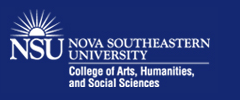Abstract
Excerpt
The field of peace and conflict studies has grown remarkably around the globe over the past few decades. In this new millennium, there will be a greater number of educational offerings being considered or launched in various higher education institutions, for the community and the world are in need of such interdisciplinary inquiries and multi-professional applications. As a long-time academic facilitator and administrator, I would like to take this opportunity to share with the PCS readers some of my experiences and observations in this arena, from an administrative and financial perspective. My hope is to assist colleagues and students in initiating more programs in peace and conflict studies across campuses.
Keywords
curriculum proposal, higher education institutions, new academic program, peace and conflict studies, strategic plan
Publication Date
5-2005
DOI
10.46743/1082-7307/2005.1059
Recommended Citation
Yang, Honggang
(2005)
"Editor’s Reflections: Developing New Programs in Peace and Conflict Studies,"
Peace and Conflict Studies: Vol. 12:
No.
1, Article 6.
DOI: 10.46743/1082-7307/2005.1059
Available at:
https://nsuworks.nova.edu/pcs/vol12/iss1/6


